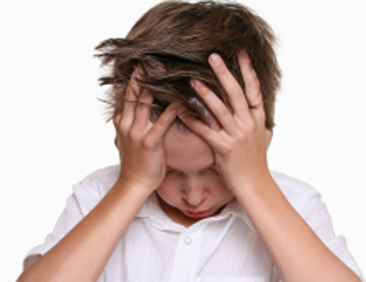 6 years old Andrew has always been known in his neighbourhood for his quick, sharp, bold replies. However, recently his mother began wondering if Andrew had gradually crossed the border from ‘cuteness’ to ‘rudeness’. When does a child’s behaviour go from being normal to being a behaviour disorder?
6 years old Andrew has always been known in his neighbourhood for his quick, sharp, bold replies. However, recently his mother began wondering if Andrew had gradually crossed the border from ‘cuteness’ to ‘rudeness’. When does a child’s behaviour go from being normal to being a behaviour disorder?
All children have episodes of bad behaviour. Is a temper tantrum thrown just because a child needs attention? Is your son being irritable or disobedient just because he is tired? Is your daughter lying only because she is too small to know any better?
Before going on to judge whether your child has a behaviour disorder, you may want to consider if there are any other factors involved:
Is a physical ailment troubling your child? Conditions like allergies, change in medicines or hearing problems may be responsible for your child acting out.
Is there a change in your family situation? Circumstances like a death or divorce in the family or the birth of a sibling could affect your child.
Does your child face any difficulties at school? Learning problems, a strict teacher or a bully at school could be adding to your kid’s emotional stress.
If you are not sure whether your child needs help, give due consideration to the below criteria:
Age: While temper tantrums and getting angry when opposed are common in a two year old who is learning to form her independent identity, this behaviour is expected to reduce by age five. Some children may not reach the ideal social and emotional milestones for their age. But your child’s behaviour may need assistance if it is excessively delayed for his/her age group.
Severity: Some stubbornness or defiance may be a part of your child’s inherent personality. Your child may be angry or irritable, may argue with his teachers or other adults or may be hurtful and mean. If this behaviour causes problems in your child’s life, you may need to seek help.
Duration: If your kid’s errant behaviour tends to occur on a frequent basis or goes on without any signs of your child outgrowing it, the troublesome behaviour may be significant.
Once you are sure that your child needs help, you can decide whom you want to approach first – your family physician, your kid’s school counselor, a psychologist or your homoeopathic physician – based on who you are comfortable with. Homoeopathy shows very good results in helping modify children’s errant behaviours, without dosing them heavily with chemical-based drugs. Do get in touch with Lifeforce Homoeopathy to find out how Dr Rajesh Shah (MD Hom) can help treat your child’s behaviour disorder with homoeopathy.




